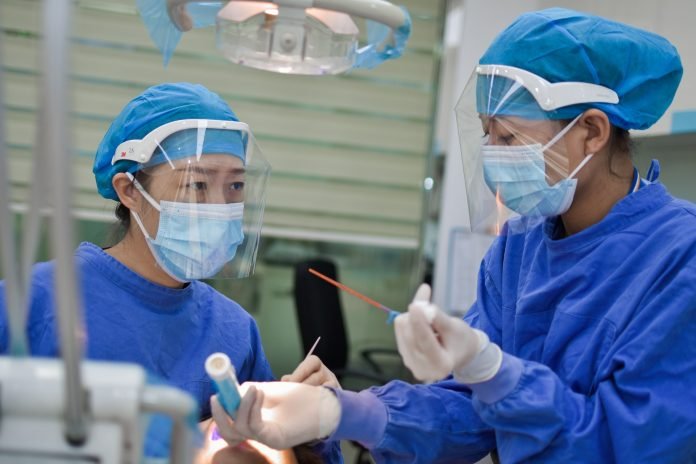
In a new study, researchers found that in severe cases of COVID-19, there is an exuberant activation of immune cells, resembling lupus, an autoimmune disease.
The findings point towards tests that could separate some COVID-19 patients who need immune-calming therapies from others who may not.
They also may explain why some people infected with SARS-CoV-2 produce abundant antibodies against the virus, yet experience poor outcomes.
The research was conducted by a team at Emory University.
Previous studies have found that high inflammation in COVID-19 may disrupt the formation of germinal centers, structures in lymph nodes where antibody-producing cells are trained.
The current study observed that B cell activation is moving ahead along an “extrafollicular” pathway outside germinal centers—looking similar to what they had observed in lupus.
B cells represent a library of blueprints for antibodies, which the immune system can tap to fight infection.
In severe COVID-19, the immune system is, in effect, pulling library books off the shelves and throwing them into a disorganized heap.
In people with lupus, B cells are abnormally activated and avoid the checks and balances that usually constrain them.
That often leads to the production of “autoantibodies” that react against cells in the body, causing symptoms such as fatigue, joint pain, skin rashes, and kidney problems. Flares are times when the symptoms are worse.
In the study, the team compared 10 critically ill COVID-19 patients (4 of whom died) admitted to intensive care units at Emory hospitals to 7 people with COVID-19 who were treated as outpatients and 37 healthy controls.
People in the critically ill group tended to have higher levels of antibody-secreting cells early on in their infection.
In addition, the B cells and the antibodies they made displayed characteristics suggesting that the cells were being activated in an extrafollicular pathway.
In particular, the cells underwent fewer mutations in their antibody genes than seen in a focused immune response, which is typically honed within germinal centers.
The team’s findings could inform the debate about which COVID-19 patients should be given immunomodulatory treatments, such as dexamethasone or anti-IL-6 drugs.
Patients with a greater expansion of B cells undergoing extrafollicular activation also had higher levels of inflammatory cytokines, such as IL-6.
One author of the study is Ignacio (Iñaki) Sanz, MD.
The study is published in Nature Immunology.
Copyright © 2020 Knowridge Science Report. All rights reserved.



